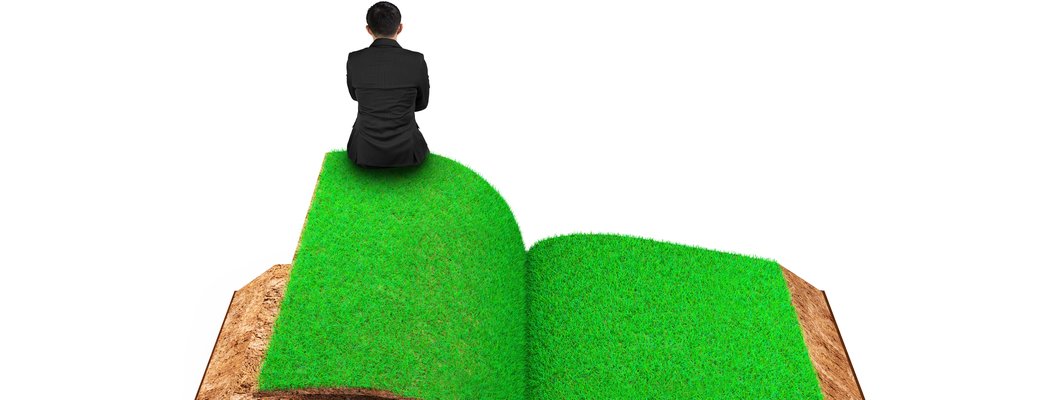
When I look at the contents of my bookshelves, I have to admit I’m a snob. Next to "In Search Of Lost Time" by Marcel Proust, stand "The Man Without Qualities" by Robert Musil and "Ulysses" by James Joyce. All three are counted among the absolute highlights of world literature from the twentieth century. I’m afraid I didn’t finish reading any of them.
During the summer holidays in Croatia we visited the coastal town of Pula and on our way back home we visited the Italian city of Trieste. In both cities we encountered a statue of the famous Irish writer James Joyce, because he had lived there for several years after leaving Dublin.Encouraged by these cultural highlights, I felt totally inspired to read ‘Ulysses'. During sixty of the nearly nine hundred pages I kept reading the –at least to me - incoherent texts. I couldn’t make much sense of it.
As a result of my frustration, I started raising our lawn with extra soil. I ordered a truckload consisting of twenty cubic meters of black topsoil, which was emptied in the driveway. I have scooped up each cubic metre of the black soil with a shovel and wheeled it into the garden fifty meters from the driveway and I swear, it was less exhausting than reading Ulysses. I am a descendant of peat diggers who most likely did not read the Ulysses either. That might explain things.
Wikipedia recommends to first read the Odyssey of Homer before you start reading the Ulysses, because the story follows the same pattern. Once you recognize that, the principal of the book becomes clearer and you discover more and more connections (an aha moment: Ulysses is a corruption of Latin for Odysseus). My conclusion is, you cannot read Ulysses, but you must study it. Unfortunately my perseverance failed me or maybe I’m just not smart enough. Anyway, the book still stands almost unread on my bookshelves.
When I finished raising the garden and planting grass seeds, I switched to the next masterpiece, which was waiting on the shelves: 'The Man Without Qualities' by the Austrian writer Robert Musil. The book starts with a magnificent almost page-long meteorological exposition on isohypses, high-pressure areas and isotherms, which Musil then summarizes briefly and dryly as: "It was a fine August day in the year 1913". In those days one could still enjoy nice weather without the sense of impending doom. Alas, the book became to overpowering. I kept at it till page fifty. The prospect of reading the remaining 1300 pages of this bulky work, made my courage sink. If at some point I have a lot of spare time, I might try again. For now, I have limited myself to the concise and most interesting summary on Wikipedia.
Musil was not interested in human traits, which he perceived as highly overrated. That is why the main character in his book - Musils alter ego - wanted to be a man without qualities. According to him, qualities restrict a person and keep him away from who he really is. Musil is not about what is, but about what is possible, about the pure potential of what could be. Well, there I can see conformity with the soil. We can give the soil properties, such as the type of soil, the pH, what is the condition of the permeability, the minerals, the organic matter content and so on. But it hardly brings us closer to what a soil really is. The soil is just too magical and is actually a creative medium. It is indeed pure potential!
Sytze Keuning (keuning@bioclearearth.nl)
Published in the journal Bodem.